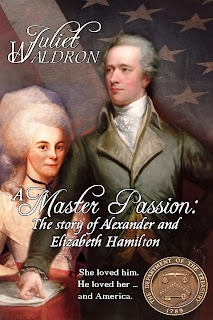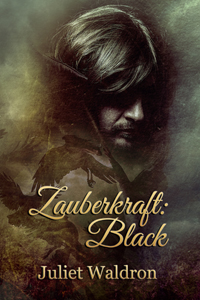See all my historical novels @
There are probably as many approaches to novel writing as there are writers. Some have a tendency to see things as a screenplay—action and dialogue. Others see characters and relationships first, and find that dialogue and action grow from that. Some plot carefully and make a comprehensive outline. Others just begin when a voice begins to speak irresistibly in their mind and their novel grows organically.
Others begin with the world in which the characters will move. Science Fiction and fantasy writers often begin this way. Historical novelists may become intrigued by a particular era, and this fascination leads to the creation of characters who will exist in a “period” world.
Such writers probably have the easiest time with “world building,” because setting/or period, or that “Other Land” they are creating has already played a large part in their inner life. , supplying the kick that took them from simply imagining to actually writing.
In most writing courses you’ll find discussion of using the five senses of sight, hearing, touch, taste and smell, and all of them need to be engaged—not all the time, of course, or nothing else would ever happen—but if your couple are seated side by side at a Regency dining table—even if they are thinking only of each other—either loving each other or hating, as the case may be—they will be surrounded by other people talking, servants coming and going, and a great deal of food. There will be ambiance a-plenty and the sensations will be coming from all combined senses.
In the last 30 years, people have become more than a little distracted from reality—not only by television, but by hand held games, cell phones, not to mention the artificial A/C world we inhabit during hot summers. As a result, we don’t really spend a lot of time paying much attention to where we actually are—and what signals are coming from our environment.
If you are walking down a street in a Third World Country—or on some far off planet, or London in Shakespeare’s day--there will be unfamiliar smells as well as unfamiliar sights. For instance, I went to school in the West Indies back in the 60’s, and rode the bus to the central market daily, and then walked up to the school through the narrow city streets. There was gray wash water running in slimy green gutters, the occasional furtive rat; there were fruit rinds and big greasy mango seeds scattered around as well as bottles.
As well as sight, I experienced unfamiliar smells too. In the long ago West Indies, there was the smell of people who didn’t have facilities for washing other than the a central pump in whatever village they’d come from, of starch filled school uniforms and office clothes and the beginning of the day’s sweat. There was market refuse, discarded fruit and animal manure ripening in the sun, the smell of a hard-worked donkey as he clopped by, the heavy odor of the goats that rode the bus with you. Have you ever imagined what a werewolf or a vampire would actually smell like? I’m not a fan of these fantasy creatures, so in my imagination—they’d smell pretty bad!
Is your character a temp, facing a vacated desk in a modern office? What’s the desk and keyboard like—are they sticky with coke, covered with ashes? Are they dusty, or spotlessly clean? How does your character deal with this temporary work-space? Does she first head for the washroom and paper towels to clean desk, keyboard and phone? Does she bring a can of Lysol with her to work on the first day at someone else's desk?
As you can see, this is not only “setting,” it also tells the reader about the characters. How do these particular people react to the environment in which you’ve placed them? Details like this breathe life into what might otherwise be wooden.
As for sound/hearing, we moderns are drowning in it. The environment has never been so distracting or noisy—thanks especially to the internal combustion engine—which roars away on every street and in every yard. Leaf blowers, lawn mowers, trucks, cars and a parade of loud pipe HD’s coming through our town are sonic assaults we endure daily. (My husband calls it “turning gasoline into noise”.) We live in a theme park town, and know what it’s like to put up with amplified concerts all summer, and an enormous volume of traffic. On top of all that, there are televisions blaring in every place we go, from restaurants to doctor’s waiting rooms.
Conversely, if you are writing about the past, none of that existed. Cities used to be noisy with people and animals, and later, with trains and trolleys, but the countryside remained relatively quiet until fifty years ago. When night came down on the farm, people went to sleep. Two hundred years ago, a candle was an expensive item, and only the rich could afford to illuminate their world after dark. Likewise, music—an orchestra was for the rich, music provided by gifted individuals who were barely an inch more important than the rest of the servants. That used to be the draw of a parade—the fact that there was music. Even when I was a kid, people still made music at home. At our house we had a piano and a song book, and for fun our family sometimes sang and played together in the evenings instead of turning on the t.v.
In the countryside, you’d hear wind in the trees, or blowing across wheat fields or rustling through a cornfield. You’d hear songbirds—and there were more of them 100 years — crickets. cicadas and wild geese. The first Europeans to arrive here remarked upon all our wildlife—and especially upon hearing it at night. In their world, they’d eaten just about everything that moved and cut down most of the trees and put the land under cultivation, and so their original home was already picked clean of wildlife. Here, before Europeans got a foothold, nature was thriving. If your characters are in undeveloped setting, for instance a 1600’s American forest, you might hear a panther scream or wolves howl.

Another sense to consider is taste. Taste and smell are strongly related, as we all have experienced losing some of both when we have a bad head cold. This sense, which we take for granted, is key to our well-being. One of my aunts, now deceased, lost her sense of taste during her eighties. I remember when she was younger, she’d had to be careful about what she ate, for like so many of us, her thirties and forties were spent fighting the battle of the bulge. Now, with this vital sense gone, she was less and less interested in eating, and ended her life weighing a mere 75 pounds.
So, if we return to that Regency banquet, what do we taste—or are we so excited and overwhelmed by the presence of handsome young and very eligible Lord Brimstone-Fire seated to our right that we can barely swallow? If we’re on Planet X, how would you describe the taste of Silonian Sea Slug in Gaxican sauce? Was the dish carefully prepared, succulent and fragrant, or is it tough and indigestible, reheated too many times in the kitchen of some grungy space port diner?
Romance writers imagine the sense of touch frequently; it’s their stock in trade. If you are shopping for clothes, you will certainly run your fingers over the fabric, see if you like the feel of what you are about to put next to your skin. If you are handling a gun, besides the weight, you will be in contact with the material of handle or stock, the cool touch of metal, the slight oily feeling of bullets as you drop them into the chamber of a .38, or push small metal cylinders into a recalcitrant .22 clip. If you are kissing His Lordship, well, are his lips smooth or rough? What's his shirt (or his bare, muscular chest) feel like?
See all my historical novels @
Fantasy or s/f writers— you know you’ve got setting work to do which is far beyond the average. If you are on a distant planet, your special world will need an almost total re-imagining, because nothing would be familiar. This leaves a lot of scope for exercising your imagination, but you’ve got to be careful to construct an environment that’s inwardly consistent. If there are many distinct and unusual plants and animals, and/or geological anomalies, magical spells, etc. you might want to write a crib sheet for yourself, so that you don’t become lost in the richness of your own creation.
Another way of attacking the business of creating a setting is what I call the “day in a life” exercise. That is, from the moment you get up in the morning until your head hits the pillow at night, spend one day really examining all the little routines you and/or others have, no matter how mundane — from brushing teeth to shining shoes, ironing, running errands, shopping, cooking, taking care of pets or organizing children, commuting to work etc. At work, we all develop routines which fill out the day in every office, hospital, factory or wherever. It’s easy to see that these slices of daily life are fodder for a writer of contemporary stories, but they can also provide a taking-off place for any novelist.
What does your character do? Do they work for a living? Or are they lords or ladies? If they are 16th century people, do they brush their teeth—and if so, with what? If a character is a servant in a great house, or an American Indian, or if they are the very eligible Lord Brimstone-Fire—how exactly do these folk spend their days?
It should be obvious that the aspiring historical novelist be well-grounded in manners of the period chosen. If you aren’t—pause and start researching. Afterward, you will instantly appreciate how much easier your story-telling flows. All kinds of questions will be answered. Is a maid permitted to look up from scrubbing the floor when her mistress passes by? Where do meals come from? Who serves/prepares it? What food is available in that particular time period? If your character goes to the kitchen, what’s the room look like? What utensils and equipment are present? Where does the water come from? How often do your characters bathe and what is required in order to obtain hot water?
You really should do that research—or you won’t have a leg to stand on. Nowadays even casual readers are also watching the
History Channel. For an example of how this has changed, I read a romance back in the early 80’s in which a hero and heroine make love on top of an upright at Stonehenge. This took more suspension of belief than I could muster—although it was okay with some long ago editor. If there had been magic involved and they'd levitated up there, it might have worked despite the acrobatic comedy factor of the narrow space, still, I don’t think this would pass with today's more sophisticated readers.
~~Juliet Waldron
See all my historical novels @















.jpg)























